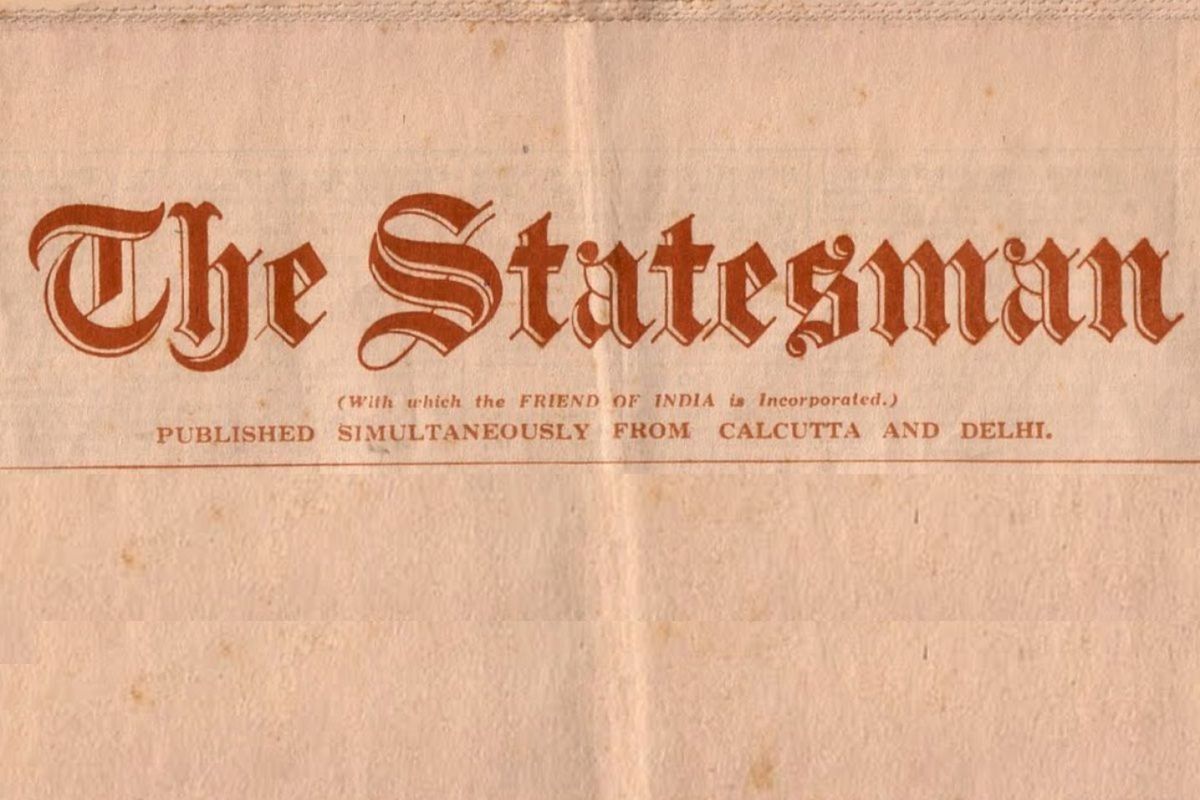Leading women personalities on what it takes to be a woman!
On International Women's Day, The Statesman talked to esteemed women personalities from various fields on what it takes to be a woman in our country and what empowers them.
On this day a century ago, these were some of the news items The Statesman readers got to read about India and the world.

OCCASIONAL NOTE
The French railway strike promises to provide the world with a piquant objectlesson on the difference between the French and British methods respectively of dealing with these crises – and also as to the results of each method. In the case of the British strike the Government made elaborate preparations beforehand with a view to minimising the general inconvenience and appealed for volunteers to help to run the railways and transport services independently of the strikers. The French Government are also apparently prepared to enlist the services of the public, but they have another string to their bow. They have mobilised the strikers, which means that these worthies will be called upon to perform their usual functions under military law, and will be subject to the most drastic penalties if they refuse to carry out orders. On the occasion of the last big railway trouble in France the mere threat that mobilisation would be ordered sufficed to avert a strike. Possibly it may now suffice to check the present trouble, and it is to be hoped it may have this effect. If the threat of mobilisation is actually carried out, it will be interesting to see how the results of this short cut to the restoration of order will compare with the more easy-going methods of the British Government. In England, the public for the most part took the strike as a joke, and was fortunate in having perfect weather to mitigate its hardships.
Advertisement
STRIKE AT TATA S IRON WORKS
Advertisement
JAMSHEDPUR, MAR 2
The representatives of the strikers met yesterday morning to decide what action should be taken upon the reply from the Managing Agents of the Tata Iron and Steel Co. Mr. Chatterjee explained to them the purport of the telegram and the committee of the strikers decided unanimously not to resume work. Mr. Scott and Mr. Swaine then interviewed the members of the committee at the house on which Messrs. Haldar and Chatterjee are staying. Mr. Haldar intimated to them the decision of the committee to continue the strike until their grievances were redressed. Messrs Scott and Swaine then discussed different points with the committee and requested Messrs Haldar and Chatterjee to again submit the grievances of the strikers in a petition to Mr. Tutwiler, the general manager.
A FATAL FALL
An unfortunate accident occurred on Sunday morning at Jeejeebhoy castle on the Connaught-road, which resulted in the death of Sergeant-Major G.H. Bott, Superintendent of the Office of D.F.C. Military Accounts. It appears that the Sergeant-Major was at a dance at Kirkee and came home to his quarters, which are situated in a tower of Jeejeebhoy castle. At about 5 A.M. Sergeant Fiflingham, of the same department, heard a cry followed by a thud as of something having fallen. On going out to see what was the matter, he found the body of the Sergeant-Major, who had evidently stepped out on to the balcony in front of his room and overbalanced falling a distance of between fifty and sixty feet to the ground. He had the body removed to the Sassoon Hospital and informed the police.
RAJKUMAR COLLEGE AT RAIPUR
The Rajkumar College, at Raipur, where the Kumars of the Ruling Chiefs of the Central Provinces and Bihar and Orissa study is making excellent progress under its present Principal, Mr. V.A.S. Stow. Great improvements have of late been made to the extensive buildings. The College grounds have been largely extended and have been tastefully laid out. In short, writes a correspondent, it is an ideal College with ideal surroundings. To supply its one great need, Maharaja Ramanuj Saran Singh Deo, Ruler of Sirguja State, generously contributed Rs 30,000 recently to provide an electric installation for the College, in memory of his late father the Maharaja Bahdur.
THE REFORMS
MADRAS, MAR 2
Lord Meston, the arbitrator appointed by the Government of India to settle the question of reservation of seats for nonBrahmins, met representatives of Brahmins and non-Brahmins at the Council Chamber yesterday afternoon. His Lordship, as an earnest believer in the future of the reforms, made an appeal to the representatives to arrive at an amicable settlement among themselves, pointing out the effect such decision would have on the British press, Parliament and British public. The representatives consented to consider the question and requested his Lordship to meet them again after half an hour. Negotiation proving futile his lordship heard arguments on both sides, and said he would endeavour to present his findings at the earliest possible time.
Advertisement